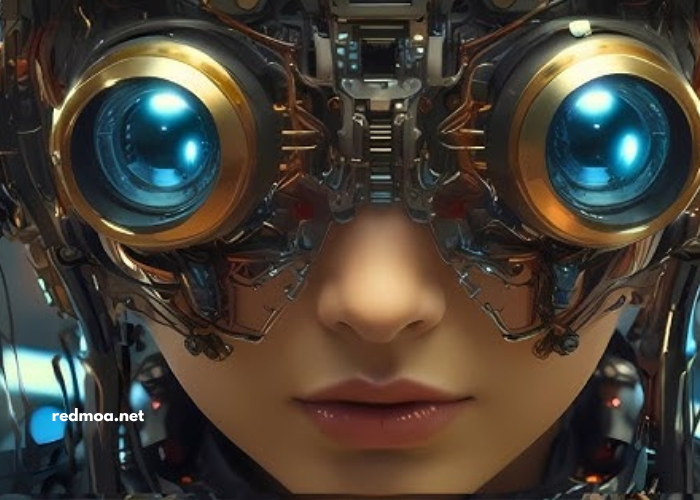The rapid advancements in Artificial Intelligence (AI) and technology are reshaping industries in unprecedented ways. As the digital landscape continues to evolve, businesses across various sectors are leveraging these innovations to optimize operations, enhance customer experiences, and unlock new revenue streams. From healthcare to manufacturing, AI and technology are driving significant transformations, making industries more efficient, sustainable, and competitive. In this article, we will explore how AI and technology are revolutionizing different industries, focusing on key areas of impact and the future possibilities they present.
The Role of AI and Technology in Industry Transformation
Automation and Efficiency Enhancement
One of the most profound ways AI and technology are transforming industries is through automation. Automation involves the use of technology to perform tasks without human intervention, which significantly boosts efficiency and reduces operational costs. AI-powered tools are capable of handling repetitive tasks, data analysis, and even complex decision-making processes in real time.
For example, in manufacturing, robots powered by AI can assemble products with greater precision and speed, allowing businesses to increase production output while minimizing errors. Similarly, in industries such as finance, AI is streamlining tasks like fraud detection, transaction processing, and customer service, enabling financial institutions to operate more efficiently and securely.
Data-Driven Decision Making
The massive influx of data generated by businesses today has opened new avenues for AI and technology to drive insights and improve decision-making. AI algorithms can analyze vast datasets and identify patterns or trends that would be impossible for humans to detect. This capability is particularly useful in sectors like retail, where businesses use AI to understand customer preferences, predict demand, and optimize inventory management.
In healthcare, AI-powered tools are being used to analyze patient data, diagnose diseases, and recommend personalized treatment plans. By leveraging data-driven insights, organizations can make more informed decisions, leading to better outcomes and increased competitiveness.
Industry-Specific Transformations
AI and Technology in Healthcare
Healthcare is one of the most impactful industries being transformed by AI and technology. The integration of AI in healthcare has the potential to revolutionize everything from diagnosis and treatment to patient care and drug discovery. AI-powered diagnostic tools, for instance, can analyze medical images such as X-rays and MRIs with remarkable accuracy, sometimes even outperforming human doctors.
Moreover, AI algorithms can analyze patient records to detect early signs of diseases, such as cancer or heart conditions, before they become life-threatening. This enables healthcare professionals to take preventive measures and provide timely interventions.
Additionally, AI-driven technologies like chatbots and virtual assistants are improving patient interactions and care management. These tools help patients schedule appointments, get medical advice, and track their health progress without needing to visit a clinic physically.
AI and Technology in Manufacturing
Manufacturing is another sector that has witnessed significant transformation through AI and technology. Industry 4.0, the current trend of automation and data exchange in manufacturing technologies, relies heavily on AI, the Internet of Things (IoT), and robotics to create smart factories.
AI-powered robots are increasingly being used to perform tasks such as assembling parts, quality control, and packaging. These robots are capable of working autonomously and collaborating with humans in a safe environment. In addition to robotics, predictive maintenance powered by AI helps manufacturers prevent equipment breakdowns by analyzing machine data to predict when maintenance is required.
The integration of IoT devices in manufacturing has also enabled real-time monitoring of production lines, improving the ability to detect inefficiencies and optimize workflows.
AI and Technology in Retail
The retail industry has also been significantly transformed by AI and technology. With the rise of e-commerce, retailers are adopting AI tools to improve customer experiences and streamline operations. Personalized recommendations powered by AI are now commonplace, as retailers use customer browsing history, preferences, and demographic data to suggest relevant products.
AI is also enhancing the in-store experience through technologies like smart shelves, which track inventory levels in real-time, and cashier-less checkout systems, where customers can purchase items without waiting in line. These innovations make the shopping experience more efficient, reduce human error, and enable retailers to provide better customer service.
Additionally, AI-driven chatbots and virtual assistants are improving customer support by offering 24/7 assistance, answering queries, and resolving issues without requiring human intervention.
AI and Technology in Finance
The finance industry has undergone a major transformation with the advent of AI and technology. Financial institutions are using AI to enhance customer service, improve risk management, and detect fraud. AI-powered chatbots and virtual assistants are helping customers with banking transactions, loan applications, and financial advice.
In risk management, AI algorithms can analyze large datasets to identify potential risks and forecast market trends, enabling banks and investment firms to make more informed decisions. For instance, AI is widely used in algorithmic trading to predict stock prices and execute trades with greater accuracy and speed.
Fraud detection is another area where AI has made a significant impact. By analyzing transaction patterns, AI systems can detect unusual behavior and flag potential fraudulent activity in real time, helping financial institutions mitigate risks and protect customers.
AI and Technology in Transportation and Logistics
The transportation and logistics industry is also being transformed by AI and technology. Autonomous vehicles, powered by AI, have the potential to revolutionize the way goods and people are transported. Self-driving trucks, for example, could significantly reduce the cost of freight transportation by eliminating the need for human drivers.
AI is also being used to optimize supply chain management. Predictive analytics helps logistics companies forecast demand, optimize routes, and improve inventory management. This enables businesses to reduce delivery times, cut costs, and enhance customer satisfaction.
Furthermore, AI-driven tools are improving traffic management in urban areas. By analyzing traffic patterns and real-time data, AI can help optimize traffic lights, reduce congestion, and improve overall traffic flow.
AI and Technology in Education
Education is another sector where AI and technology are playing an increasingly important role. AI-powered learning platforms are offering personalized learning experiences, adapting to students’ individual needs, strengths, and weaknesses. These platforms provide targeted feedback, suggest resources for improvement, and allow students to learn at their own pace.
AI is also being used in administrative tasks to streamline processes such as grading, scheduling, and resource allocation. This allows teachers and administrators to focus more on student engagement and learning outcomes.
Moreover, AI-enabled tools are helping to bridge the gap for students with disabilities, providing them with tailored learning experiences and accessibility features such as speech recognition and real-time translation.
Future Implications of AI and Technology
The continued growth of AI and technology is expected to bring even more profound changes to industries. As AI becomes more advanced, we can anticipate even greater automation and innovation across various sectors. The convergence of AI with other emerging technologies like blockchain, quantum computing, and 5G is likely to unlock new possibilities, from enhanced security in financial transactions to more sophisticated medical treatments.
However, the rise of AI and automation also raises concerns about job displacement. As machines and algorithms take on more tasks traditionally performed by humans, there may be a shift in the job market. Reskilling and upskilling initiatives will be critical to ensure that workers can adapt to the changing landscape and continue to thrive in the AI-driven economy.
Ethical Considerations in AI Development
As AI continues to transform industries, ethical considerations will play a crucial role in shaping its development. Issues such as privacy, data security, and algorithmic bias need to be addressed to ensure that AI technologies are used responsibly and for the benefit of society.
Governments, organizations, and policymakers must work together to establish clear regulations and guidelines that govern the use of AI, ensuring that its benefits are maximized while minimizing potential harms.
Conclusion
AI and technology are fundamentally changing industries in ways that were once unimaginable. From automation and data-driven decision-making to sector-specific innovations in healthcare, manufacturing, finance, and beyond, AI is transforming business operations and enhancing efficiency. As these technologies continue to evolve, industries must adapt to stay competitive, while also addressing the ethical implications and potential challenges that come with them.
The future of AI and technology holds limitless potential, and businesses that embrace these changes will be well-positioned to thrive in the digital age. By harnessing the power of AI, organizations can not only improve their processes but also create new opportunities, foster innovation, and enhance their overall impact on the world.





